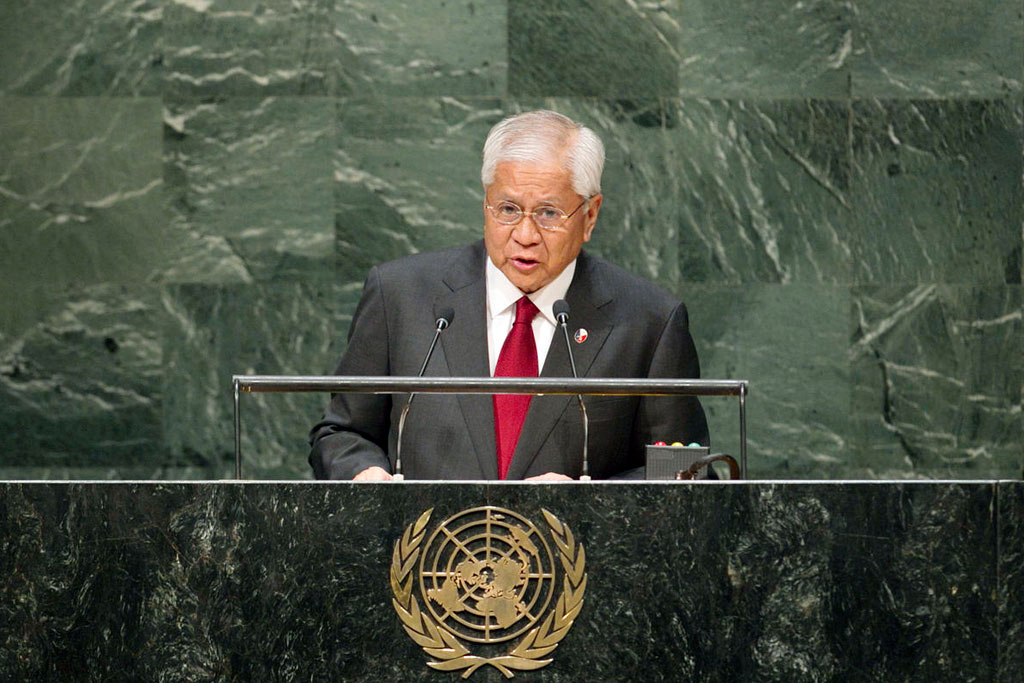PH seeks new antipoverty grant from US aid agency
The Philippines is in talks with an independent American foreign aid agency for a new antipoverty grant in 2016.
Foreign Secretary Albert del Rosario and the CEO of the Millennium Challenge Corp. (MCC), Dana Hyde, announced the likelihood of a second Millennium Challenge Account-Philippine Compact next year at a recent meeting in New York, the Department of Foreign Affairs said Tuesday.
“On behalf of the Aquino administration, we want to express our profound thanks for the great support of the MCC in the implementation of the first Millennium Challenge Account-Philippine Compact… and we are very excited about the prospects for a second compact,” Del Rosario said.
The Philippines in 2010 received a five-year grant totaling $434 million covering three big projects, namely, the Secondary National Roads Development Project, the Kapit-Bisig Laban sa Kahirapan-Comprehensive and Integrated Delivery of Social Services, and the Revenue Administration Reform Project.
At the meeting, Hyde made positive remarks about the partnership between the Philippine government and MCC.
Article continues after this advertisement“(We) have done quiet good work together in our first compact, particularly in ways the program could be scaled up and taken nationally,” she said.
Article continues after this advertisementHyde noted that the secondary national roads project in Eastern Samar, which incorporated calamity-resilient features in the project, could be replicated in other compact programs.
“(MCC) is very much looking for opportunities where we can leverage other private-sector investments and where we can create a systemic, larger change like the first Philippine compact,” she said.
Under the Revenue Administration Reform Project, Philippine Ambassador to the US Jose L. Cuisia Jr. noted how it led to improvements in government revenue generation which grew double-digits annually.
The decision for a second compact will be based on a rigorous development process, which include a joint constraints analysis conducted by the MCC and the Philippine government.
During the meeting, MCC officials said the analysis had been concluded and its results were being evaluated.
A decision on a second compact will be made by the MCC board of trustees and then will go through a US congressional notification process.
Countries eligible for a second compact must not only hurdle most of the 20 MCC indicators—including a must-pass control-of-corruption indicator—but also “show meaningful progress toward achieving first compact results.”
Hyde is scheduled to visit the Philippines in November to check on the progress of the first MCC compact projects which will end in May 2016.
MCC is an agency established by the United States Congress in 2004 to provide multiyear economic assistance to developing countries under the philosophy that foreign assistance should be focused on good policies, country ownership and results.
